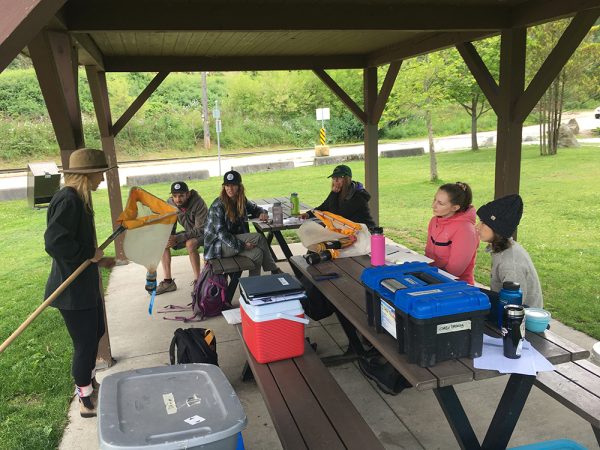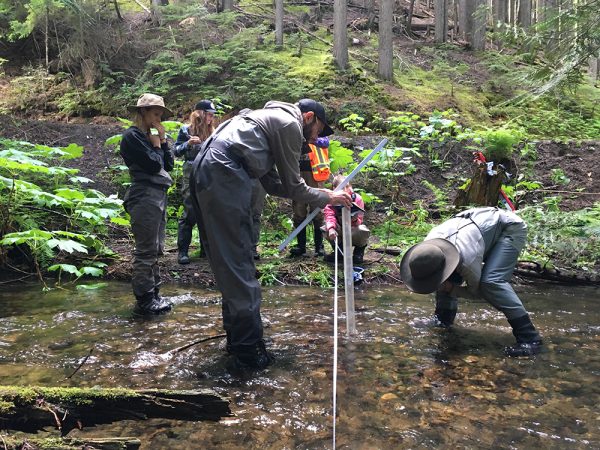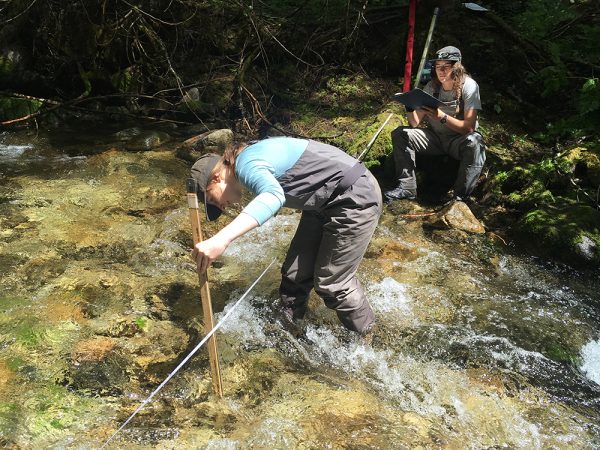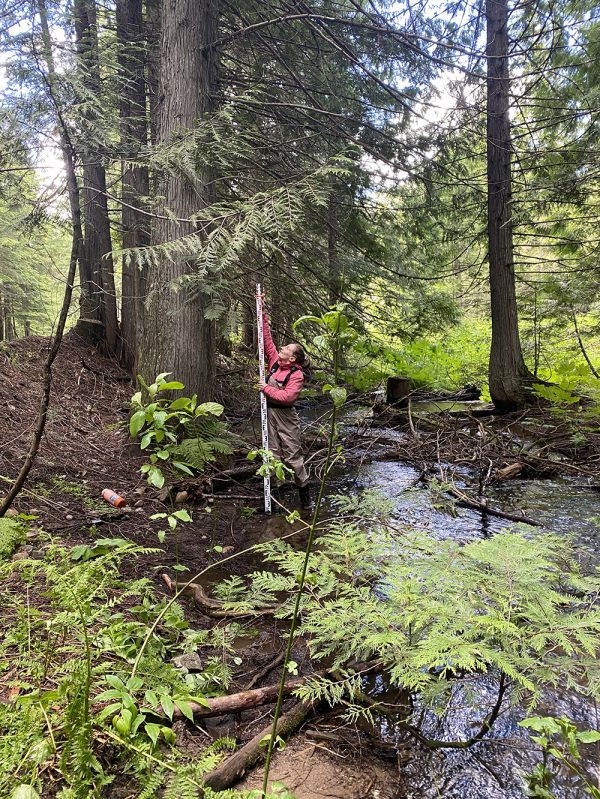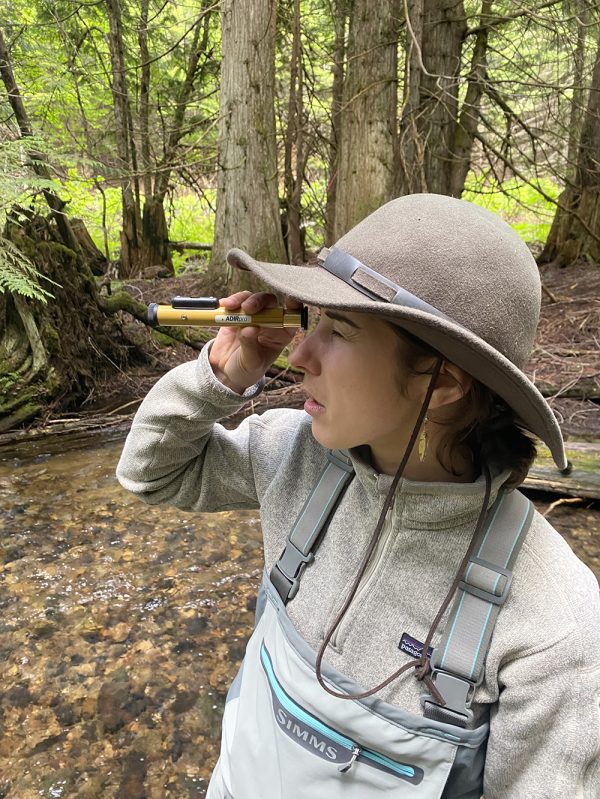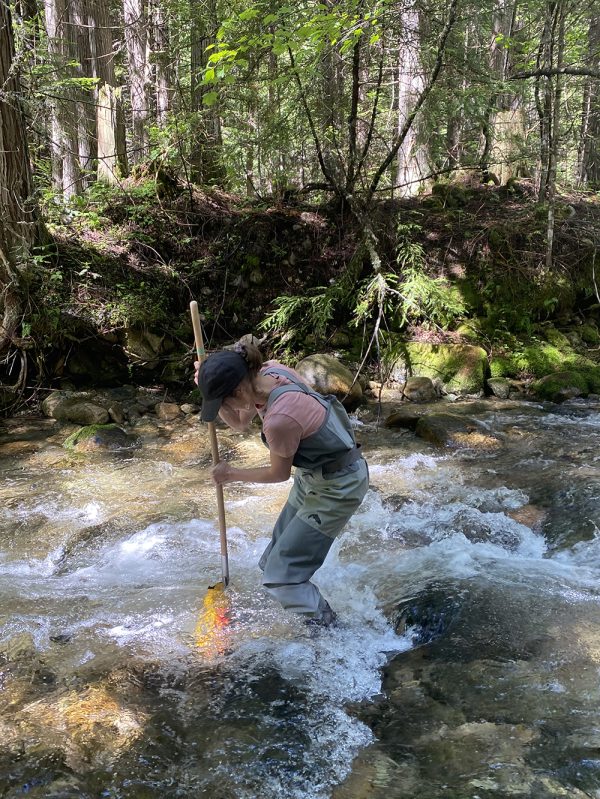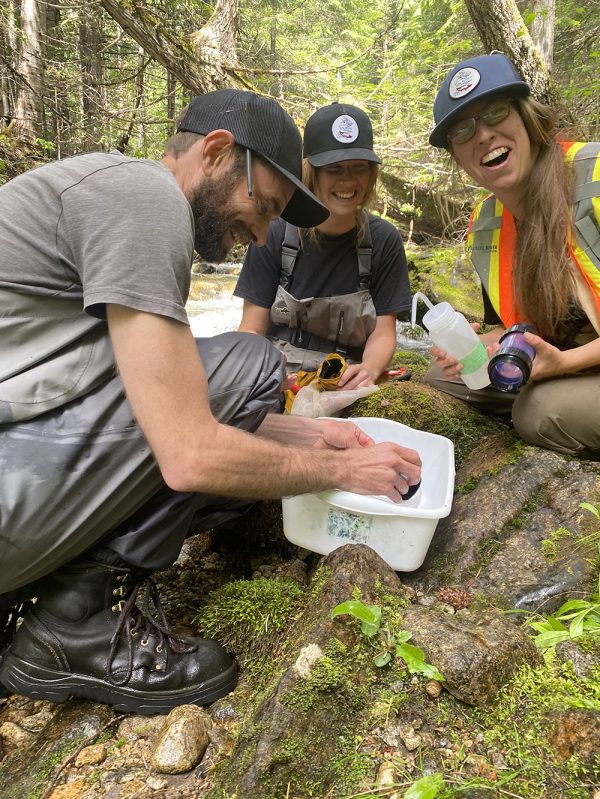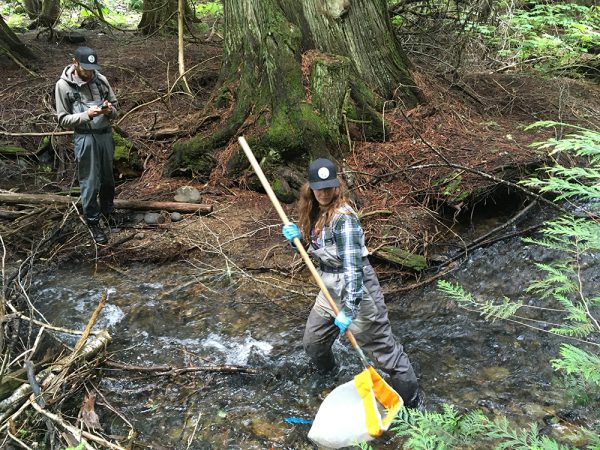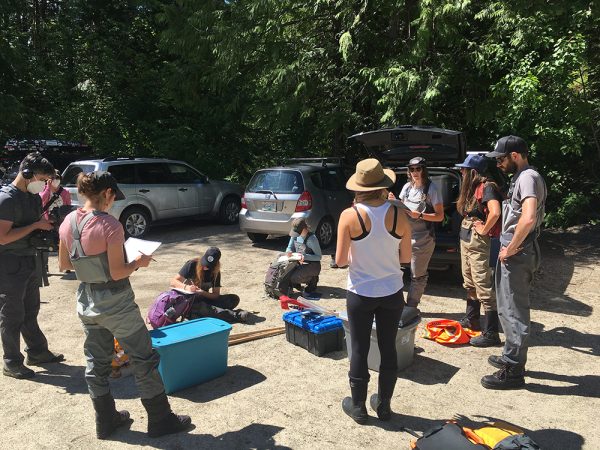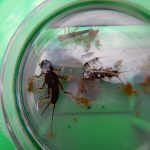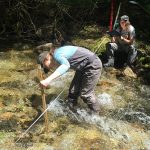Dipping my toes into aquatic biomonitoring and swiftwater rescue training
By Anwen Rees, LLC Program Assistant
Field season has officially started! As a new member of the Living Lakes Canada (LLC) team, I have been patiently anticipating the opportunity to get out of my bedroom (that has been doubling as my work-from-home office space) and into the great outdoors. The first field trips of the year began in mid-June when I was able to take two courses back-to-back: an LLC-led CABIN (Canadian Aquatic Biomonitoring Network) course in Nelson and a Swiftwater Rescue course in Squamish (CABIN is the nationally standardized protocol for the collection of benthic macroinvertebrate samples to assess aquatic health).
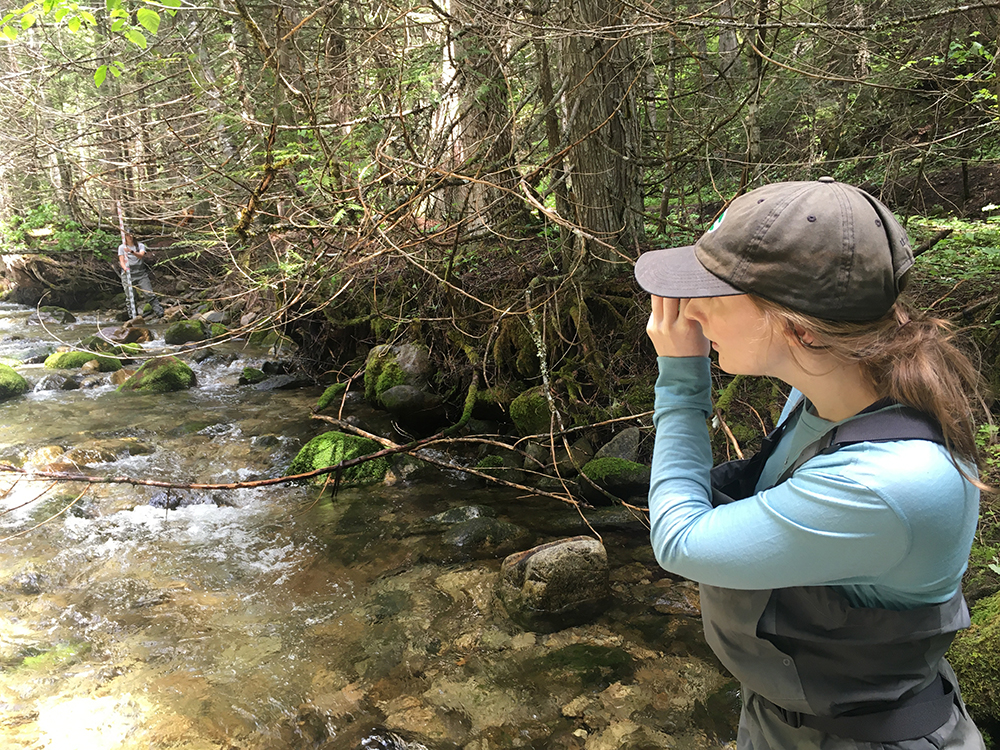
LLC Program Assistant Anwen Rees learns the CABIN protocol in an LLC-led course held in Nelson, BC in June.
The CABIN course in Nelson eased me into biomonitoring with LLC. I completed the online modules for CABIN in March, and was eager to complete the field component required for my Project Manager certification. I have spent quite a bit of time entering data onto the CABIN database for various community groups so I felt intimately familiar with the format of the standardized field sheets. The Nelson course this year was fairly small, comprised of participants from the Elk River Alliance, LLC and the University of British Columbia. The course began in a park, where we reviewed the field sheets, safety protocols and basics before heading out to the first stream. When we got to the first stream, LLC Program Manager Raegan Mallison, our CABIN trainer, walked us through the monitoring protocol. We measured width, flow and slope; we recorded information about the vegetation; and we practised collecting invertebrates with kick-nets. The next day, we practised running through the CABIN protocol, becoming more comfortable filling out the field sheets in teams. That afternoon, Raegan observed us completing the protocol to ensure that we grasped the concepts — and we all passed the course.
Now equipped with the knowledge to monitor streams using CABIN, I joined the LLC CABIN team as we headed to Squamish to complete a Swiftwater Rescue course specialized for Field workers. Typically, the CABIN protocol monitors sites that are in “wadeable streams” with water only reaching up to mid-thigh. However, LLC works around water frequently — with multiple community groups — and plans to expand sampling programs in the future. Because of this, Swiftwater rescue techniques are essential for troubleshooting in the field. Swiftwater Rescue certification ensures we have a basic understanding of the dynamics of swift water, and the foundations for rescue in worst-case scenarios.
The course consisted of one day online, and two days in the field along the Mamquam River. When starting the course, I knew I liked to swim, but I had very little experience in white water. However, on the first day we swam down rapids and across the Mamquam in glacial temperatures. During the field portion, we practised various rescue scenarios using ropes and swimming techniques. On the second day, we were able to practice filling up our waders, and taking them off while floating downstream. It was so cold that I wore merino wool under a wetsuit! At times, it was Type 2 fun (miserable while it’s happening, but fun in retrospect), but I felt so grateful to have the opportunity to learn and adventure as part of my work.
After having dipped my toe into LLC work over the last few months, the combination of my CABIN and Swiftwater Rescue Certifications feels like I have been immersed in a new world. Spending time learning and practising biomonitoring protocols and rescue scenarios with LLC has made me feel rejuvenated and energized — much like jumping into the Mamquam River!
Next, LLC is leading CABIN trainings in Rocky Mountain House in Alberta; and Kenora and Thunder Bay in Ontario. I’m looking forward to supporting Raegan in these courses and meeting the people and invertebrates that love Canada’s freshwater as much as I do.
Read Program Assistant Heather Shaw’s account of her experience.


